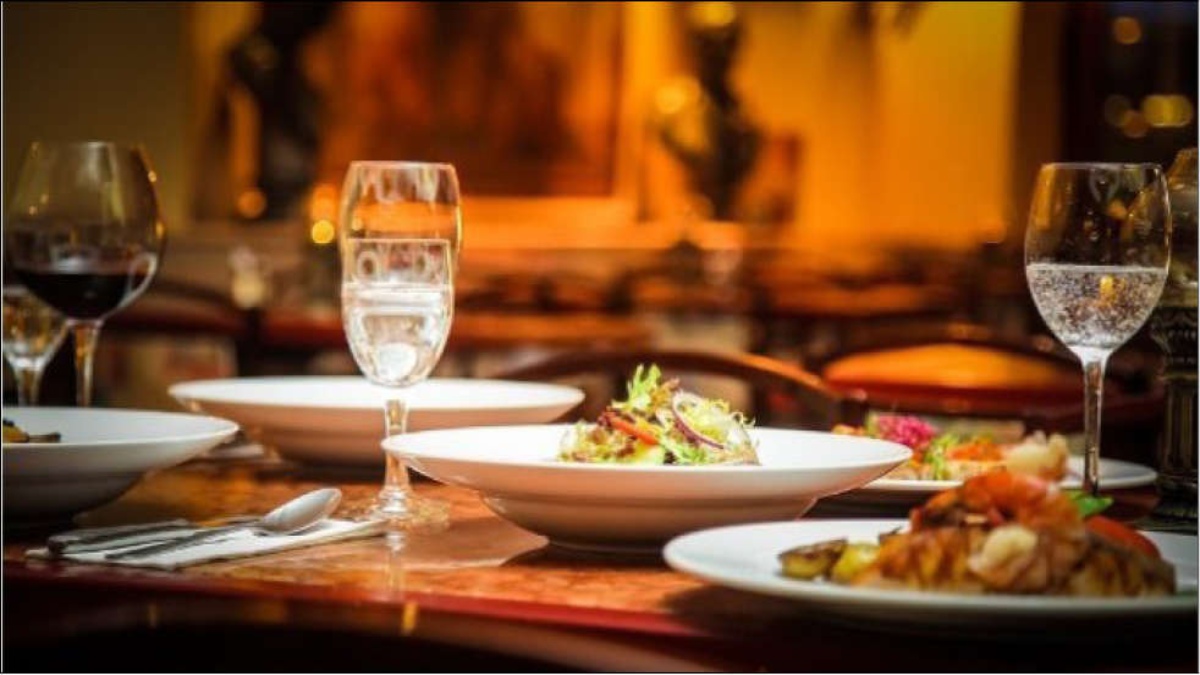


As the curtain rises on 2021, there’s one industry that is finding it very hard to celebrate the arrival of the New Year. Few sectors of the economy have been as badly mauled by the Covid-19 pandemic as bars and restaurants. And the shadow of uncertainty that continues to loom over the industry, which was seriously looking forward to 2019-20 being its best in many years, was visible even in the run-up to New Year’s Eve.

It started with Maharashtra enforcing an 11 pm ‘curfew’ to prevent people from violating social distancing norms, even as restaurant owners were announcing celebratory evenings to ring in Christmas and the New Year. The Maharashtra government’s move, taken for sound scientific reasons, tripped the plans of the restaurants in the state to cash in on Christmas and New Year’s Eve. Worse, Delhi, Rajasthan and Karnataka followed suit, so Goa was the only place in the country where New Year’s Eve was celebrated with traditional revelry.
Apart from the obvious economic hit the industry took because of the curfew, the optics of it wasn’t right. It showed how vulnerable the hospitality sector was to developments over which it had no control. Around the world, from Auckland and Sydney to Dubai, London and New York City, the central landmarks were lit up and livened with pyrotechnic displays, either for limited audiences or for television cameras, sending out a message of hope amid lingering uncertainty. Suppose we had staged a spectacle on this scale at Taj Mahal, in the presence of frontline caregivers from all over India, wouldn’t it have been both a thoughtful and a memorable gesture on the part of the country?
It’s definitely going to be a difficult 2021 for bars and restaurants in the country. According to a study by dineout, a leading online dining out and restaurant tech solutions platform, two million people working in restaurants and bars are without jobs and only one-half of this number can expect to be re-employed by this beleaguered sector in 2021. The study also points out that 30 per cent of the bars in Tier-I cities are likely to shut down, putting further pressure on unemployment numbers. What will happen to the army of jobless young people created by such debilitating developments?
A significant majority of them have gone back to their home towns and villages in the hope of finding jobs in their old neighbourhoods. Many would find themselves being hired by cloud kitchens and home delivery services, or by bars relocating to Tier-2 and Tier-3 cities and towns, and ‘drive-in’ cinema theatres (here’s trend to watch out for).
Some would join the burgeoning ranks of home chefs—the first half of 2020, according to dineout, saw the addition of 2,500 new home chefs, and their number is expected to balloon to 10,000 in 2021. Likewise, the market share of cloud kitchens is expected to rise from the present 13 per cent to 30 per cent in the year ahead. The share of takeaways is also expected to shoot up from 1 per cent to 15 per cent and the home delivery business is likely to see a 30.55 per cent growth year on year for some time to come. The chai-pakoda economy envisioned by Prime Minister Narendra Modi is finding myriad expressions.
Yet, despite these green shoots holding out reasons of hope, of the two million hospitality industry professionals pushed into joblessness by the pandemic, just a million are likely to find jobs by the end of 2021. We owe it to this one million to pray for their well-being, for, when the going was good, they had given us many reasons to come back home after a meal with a sense of everlasting joy, or had made a special effort to turn a celebratory occasion into something extra special.
RAISE YOUR BEER TO THE SPIRIT OF CHARITY
Most Diwali gifts do not leave much of an imprint on the minds of their recipients—maybe they do have the desired effect on the heart! So, you can imagine how much a gift of decorative festive lamps made with discarded beer bottles, with sugar-free gur besan laddus to sweeten the deal, must have intrigued me, so as to make me wait for the sender to gift to recover from an attack of Covid-19 and get talking.
Abhinav Jindal couldn’t have rolled out his beer brands—Bee Young and Yavira—at a more inopportune moment. It was September 2019 and the alcobev market was gasping for breath. The former Andersen Consulting (before it became Accenture) partner and liquor distributor launched Bee Young—a strong lager with a 7.2 per cent alcohol content—using a two-row barley from Australia, hops from Slovenia and the unblemished water of the Bhakra canal that flows next to his factory in Patiala district. His other beer is Yavira, India’s only Basmati pilsner with an alcohol content of 6.2 per cent. For the rice he turns to farmers in Punjab and Haryana.
For Diwali, Jindal could have simply handed out sample bottles with fancy accompaniments to his friends and business associates. Instead, he tied up with the Swami Sivananda Memorial Institute at Punjabi Bagh and got children from economically disadvantaged families to make Diwali lamps with hand-painted beer bottles. So impressed was he by the work of the children that Jindal has now made it a year-long charitable activity. I so hope that he also starts marketing the gur besan laddus without stinting on their dollop of pure cow’s milk ghee.

Abhinav Jindal, founder of the beer brands Bee Young and Yabira (the only basmati pilsner in the country), has tied up with a local NGO to get young children from deprived families to make decorative lamps with discarded beer bottles.
NEWBIE BUSINESS DELIVERS AWADHI FLAVOURS TO YOUR DOORSTEP



My first acquaintance with Rishi Raj Singh dates back to the time when he was the star bartender at Rick’s in The Taj Mahal Hotel many moons ago. Soon, he was ensnared by the lure of the suit, joined the ITC Hotels as a beverage manager, and then went up the corporate hierarchy—till fate collided with his career plan.
Singh left the ITC Hotels, cooled his heels for a couple of years marketing and managing a hotel in the Himalayas, and now, at last, he has taken the plunge as a cloud kitchen entrepreneur. And his Awadh House (operating out of a small space across the road from Magnolias on Gurgaon’s Golf Course Road) distills the wisdom he must have acquired during the many hours and years he spent at ITC Hotels, which have the country’s finest team of Awadhi chefs.
I will order from Awadhi House on any given day for its Mutton Galouti Kabab (as smooth and consistent as the ones I have had at the establishments of seasoned players), Nalli Nihari (its bone marrow-loaded gelatinous gravy is sheer pleasure), Murgj Do Pyaaza (it’s hard to find his classic at restaurants today), and the unbeatable Gulab Ki Thandi Kheer. And it clears my Soya Chaamp test with flying colours—anyone who can get this one right earns my lifelong support!

The New Year’s Eve curfew unexpectedly imposed in Delhi, Mumbai and several other cities across the country was yet another wake-up call for the beleaguered hospitality industry. Living with debilitating disruption, it appears, is the ‘new normal’.